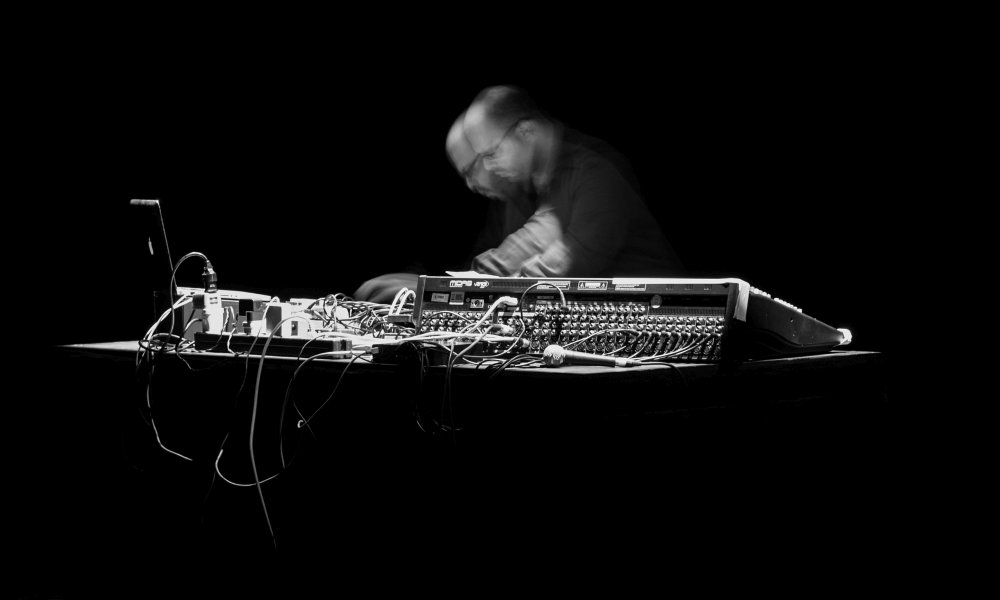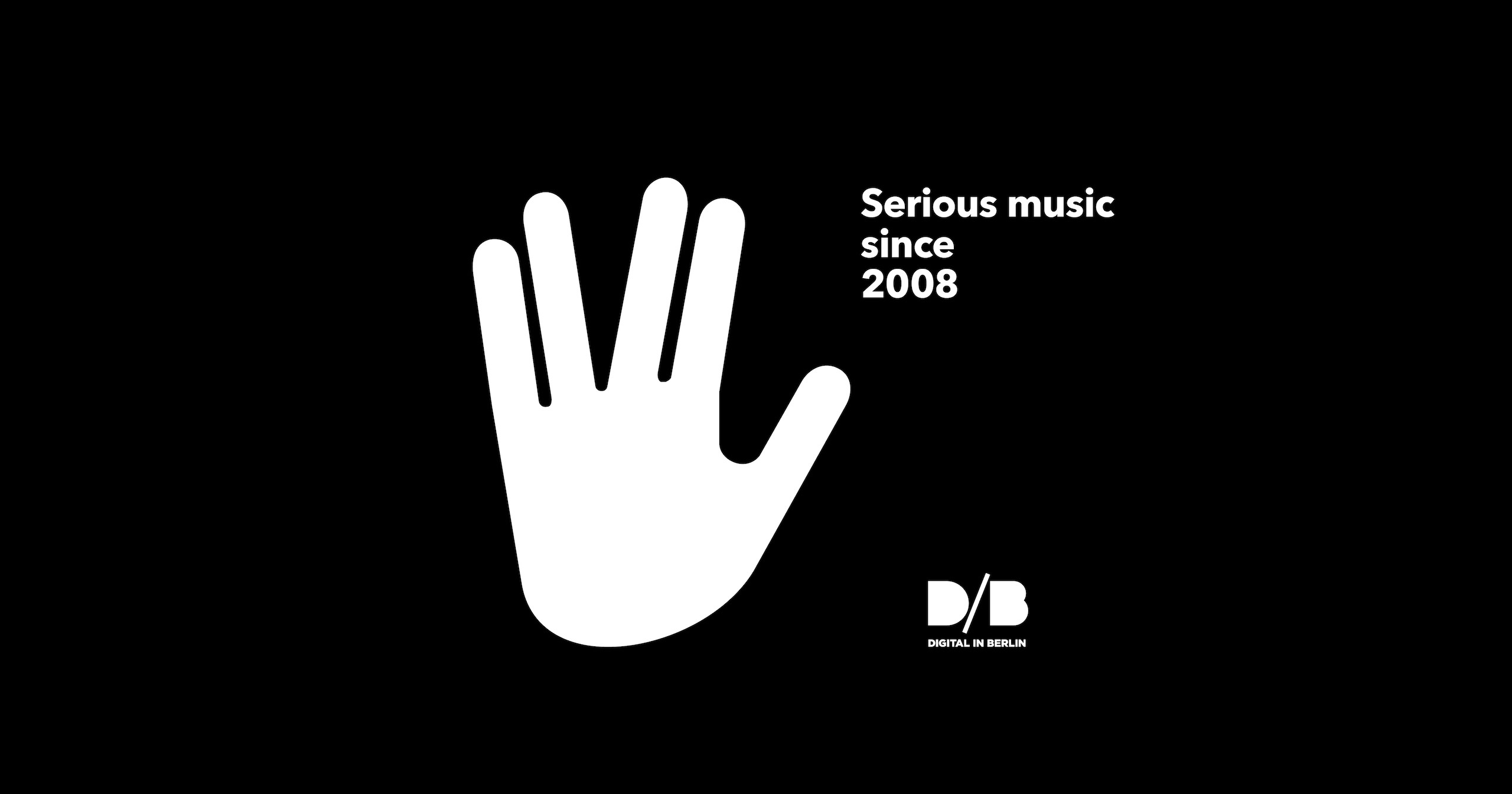In Cairo-based Egyptian artist, musician and writer Hassan Khan’s wide and diverse practice every aspect informs the other. In the music scene through different guises since the early 90s, he first began to work with music as a teenager by battering a guitar through a homemade fuzz box and creating multi-track works by bouncing between two stereos before finally stealing a four-track cassette recorder. Since then he has produced a large amount of compositions and live performances that defy classifications and have been extremely diverse in approach, structure, references and instrumentation. Khan usually uses a battery of feedbacking mixers, filters, processors, laptop manipulation, virtual synthesizers and live mikes in tand em to pre-composed and recorded studio sections to produce live sets that are treated as one composition. All the music is original.
Live appearances include Solomon R. Guggenheim Museum, New York (2016); Portikus, Frankfurt (2015); Forget Amnesia Festival, Stromboli (2014); Klangzeit New Music Festival, Münster (2014); Maerz Musik Festival, Berlin (2013); and Auditorium du Louvre, Paris (2012). He has recently published his first novella Twelve Clues, a science fiction tale of the trembling of civilizations and is currently preparing for his participation in the forthcoming Venice Biennale. Khan’s coming concert in Berlin “Live Ammunition! Music for Clapping, String Quartet and Live Electronics” will be at SAVVY, Contemporary on Thursday 16th March at 6pm as part of MaerzMusik 2017. A volume of essays on his work entitled “Dreams and Music: Hassan Khan” was published by Revolver Press in 2016.
Facts
1: I am unable to blindly believe in “facts”.
2: Changing systems is incredibly difficult.
3: The world is on the cusp of major changes and transformations.
Questions
1.What is the biggest inspiration for your music?
The ability to hear something in your head. The rhythm of walking. Dreams. Listening to music – but only sometimes. Deadlines and the imagined reaction of an audience. The invisible partner voice in my head.
2. How and when did you get into making music?
When I was a teenager I picked up an electric guitar like millions of other teenagers.
3. What are 5 of your favourite albums of all time?
I don’t have favourite albums.
4. What do you associate with Berlin?
Berlin was first connected to a very passionate yet turbulent relationship; it’s winters were harsh and summers were beautiful. Then it’s complex layers became visible and history came crashing down. And now the recognition of an old friend; promises and boredom; simple good times laced with a dash of political consciousness.
5. What’s your favourite place in Berlin?
I don’t have a favourite place anymore.
6. If there was no music in the world, what would you do instead
If there was no music consciousness would be so radically different that I have absolutely no idea what it would be like to be a person, let alone what “I” would be doing.
7. What was the last record/music you bought?
I actually do not remember because I rarely buy music. I am either given it or I download it.
8. Who would you most like to collaborate with?
An amazing female vocalist that I don’t know.
9. What was your best gig (as performer or spectator)?
Again that’s impossible to really say – but moments that stand -out include: the moment Sherif and I locked into a slightly atonal swing in my first public concert “Modern Music for the Guitar” at the Cairo Atelier in 1993, the moment I noticed two Japanese girls dancing to the broken beats of “tabla dubb” at Babylon Istanbul in 2003, when someone climbed on stage and slept on the floor at a concert with Mahmoud Refat at Sakiat El Sawy, Cairo in 2004, the moment the audience became quiet when I was premiering “Incidence” at Point Ephemere in Paris in 2007, the moment I forgot where I was while playing “The Big One” for the first time in 100Live Festival, Cairo, 2009, the moment I felt the audience channeling their frustrations and anger into the music while performing “The Big One” in 2010 in Murcia, the closing take-off at Superstructure in 2012 at the Louvre, the strange affect of the first moment the riqq comes in in “Taraban” at the Serpentine, London, Balcon Heliopolis, Cairo, Portikus, Frankfurt between 2012 and 2015, and finally realizing how “Live Ammuntion! Music for Clapping, String Quartet and Live Electronics” works At Canale Undici in Cairo 2017.
10. How important is technology to your creative process?
The way I understand technology is that it’s part and parcel of the process of instumentalizing. Therefore there can be no music without technology. What you do with it (whether you rely on your voice only or use millions of dollars worth of gadgets) is what counts. For me the set-up I use, the process as well as the medium everything goes through are all instruments I harness.
11. Do you have siblings and how do they feel about your career/art?
My younger sister is a filmmaker she respects what I do but doesn’t necessarily like everything I do. We’ve worked together before though and she seemed to have been happy with what I did for her.
MaerzMusik | Let Sonorities Ring – Julius Eastman | Hassan Khan, Jace Clayton | 16.03.2017 @ SAVVY Contemporary
MaerzMusik | Julius Eastman / The Unbreathing – Opening with Hassan Khan | 17.03.2017
MaerzMusik | Hassan Khan „Superstructure (II)“ | 23.03.2013

